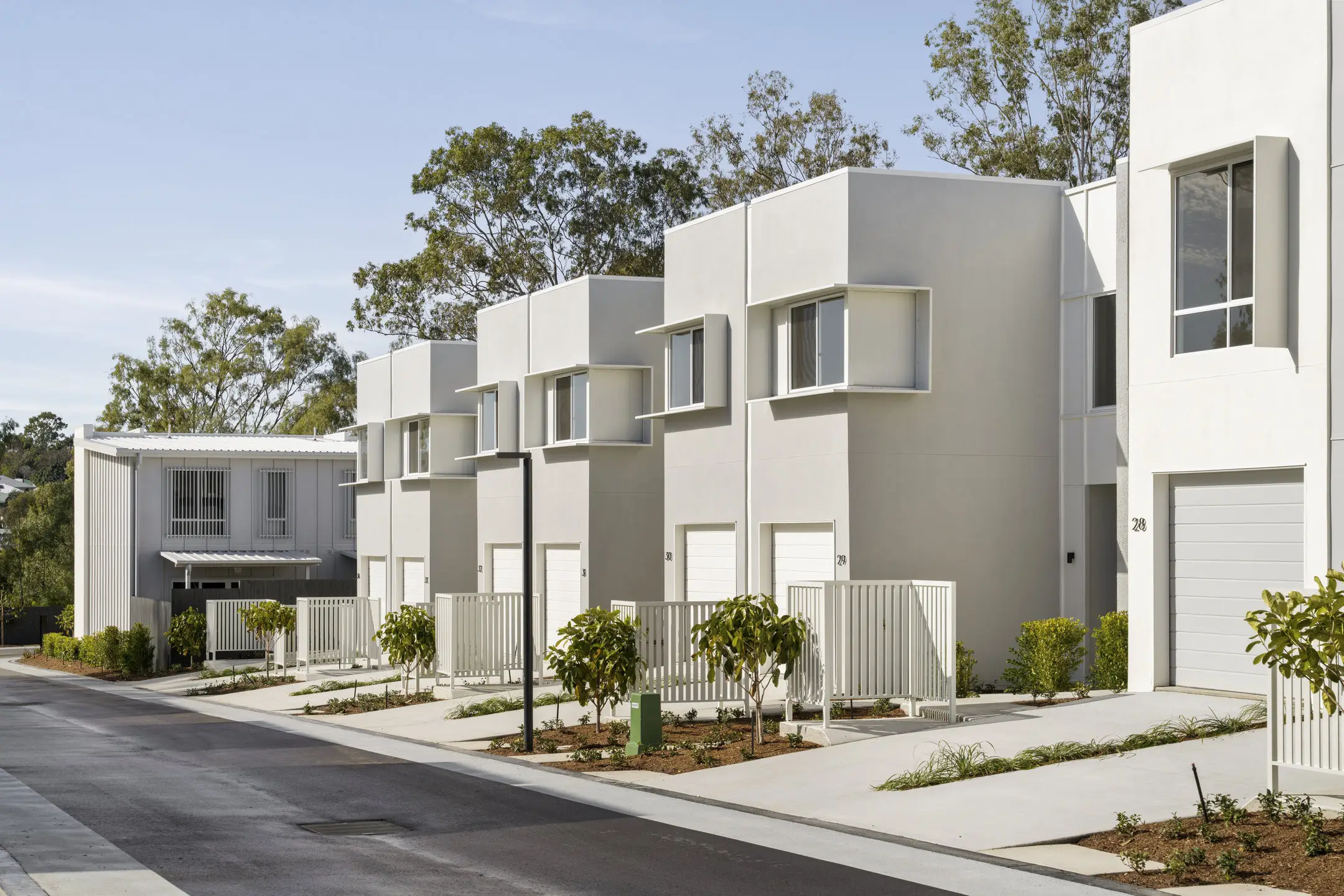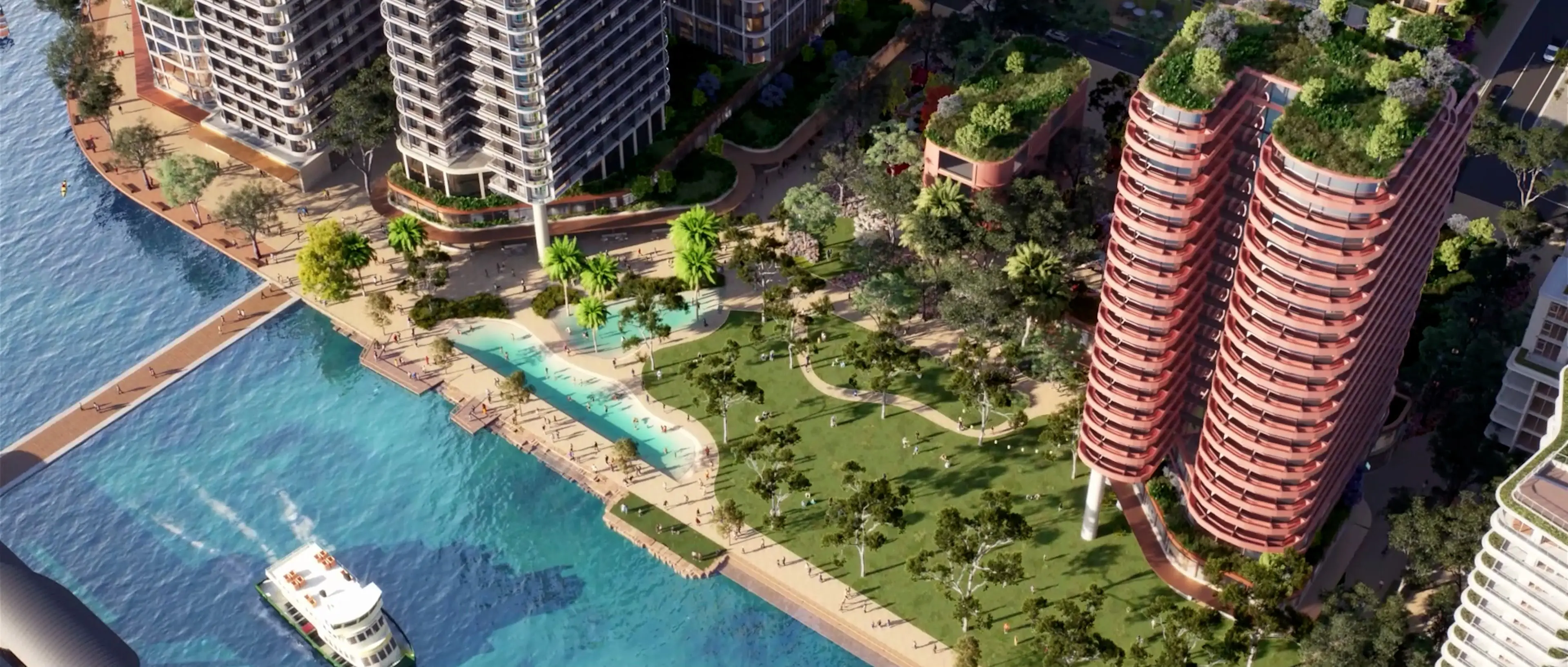
Australia's inflation rate is cooling, but interest rate cuts are expected to hold off until next year, potentially weighing on housing prices in the months ahead. According to the Australian Bureau of Statistics (ABS), annual inflation dropped to 2.8% in the September quarter, reaching a 3.5-year low.
Quarterly price growth decelerated to 0.2%, a sharp contrast to the 1% increase in the June quarter. While overall inflation is easing, CoreLogic economist Eliza Owens suggests underlying pressures may extend the wait for rate cuts into early 2025.

"Core inflation is trending down, reaching 3.5% - its lowest since 2021.
"This sustained core level, along with service inflation pressures, is likely to keep the RBA from cutting rates anytime soon." Said Owens.
While the 0.8% quarterly rise in core inflation met expectations, it prompted the Commonwealth Bank of Australia (CBA) to push its rate cut prediction from December 2024 to February next year. Now, all major banks predict the first rate cut in early-to-mid 2024, implying little to no rate relief in 2024.
"We anticipate three 25 basis point cuts in total, with two occurring in the first half of the year and one in the final quarter of 2025," said Madeline Dunk, chief economist for ANZ.
This series of cuts could potentially reduce the cash rate to 3.6% by the end of next year.
This delay is anticipated to curb housing demand, nudging Sydney's housing market into a potential softening, while cooling growth in Brisbane, Perth, and Adelaide.
Jessica Brady, View.com's Money and Markets expert says:
"Interest rates aren't just a temporary hurdle to get over; the situation we are currently in could become the new normal, at least for a while. If we look through the pages of the history books, we would be reminded that our current interest rates are not, in fact, high. The purchase price to household income multiplier is the culprit here. With wage growth barely keeping up with inflation and cost-of-living pressures still bearing down on many households, it's easy to feel trapped, stressed and in survival mode."
Housing prices may soften as rate cuts stall
The delayed prospect of an interest rate cut may create a drag on housing demand across Australia's major cities.
Analysts suggest that Sydney could see a slight downturn as affordability constraints persist. Other strong-performing markets, like Brisbane, Perth, and Adelaide, could experience more moderate growth as buyers delay purchase plans in light of continued high-interest rates.
Fuel and electricity prices eased significantly this quarter, largely due to government energy rebates, and contributed heavily to the lower inflation figures.
Michelle Marquardt, ABS head of prices statistics, said:
"The September quarter's rise of 0.2 per cent is the lowest outcome since the June 2020 quarter fall which occurred during the COVID-19 outbreak and was driven by free childcare.
"Annually, the September quarter's rise of 2.8 per cent was down from 3.8 per cent in the June quarter. This is the lowest annual inflation rate since the March 2021 quarter."
Within housing, annual rental growth slowed to 6.7%, slightly impacted by the recent increase in Commonwealth Rental Assistance and a rise in rental supply due to increased investor activity.
"We're seeing some of this downward pressure on rental inflation from market factors like investor returns and a shift toward shared housing," Owens explained.
The cost of new homes has also steadily declined, now sitting at 4.8% annually - a marked decrease from the 20% annual surge seen at the height of demand in 2022.
Outlook: No immediate rate cuts as inflation holds above RBA target
Despite easing inflation, Australia's trimmed mean, or core inflation, remains above the Reserve Bank's target range of 2-3%.
Owens noted that the RBA's caution stems from persistent service-sector inflation:
"Service inflation is still high and doesn't align with the RBA's target, so a rate cut this year looks unlikely."
Some economists, such as Deloitte Access Economics partner Stephen Smith, see room for a rate cut to alleviate household budgets. Smith stated,
"With inflation moderating and households feeling the pinch, persistent price pressures like rents and medical services are primarily supply-driven, not demand-led. The data points to interest rate hikes having achieved their purpose, supporting a case for a rate cut."
As inflation cools and interest rate predictions shift, the Reserve Bank is expected to monitor inflation trends in the coming months.
For the property market, these economic dynamics suggest that growth will be tempered in the short term, with a brighter outlook possible when rate relief arrives next year.
This article was originally published from view.com.au and appears with permission.


